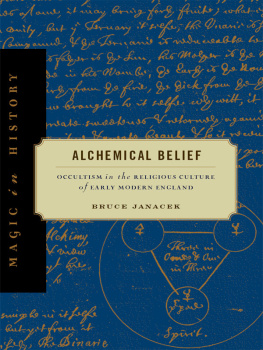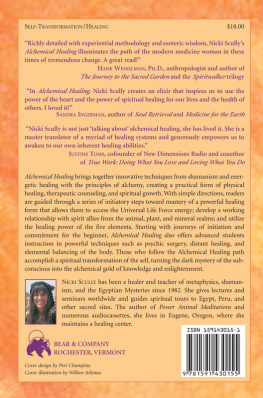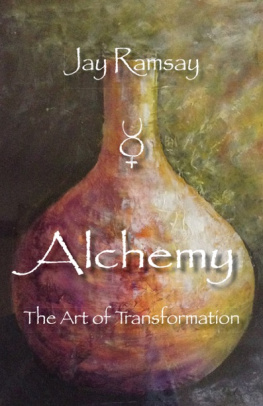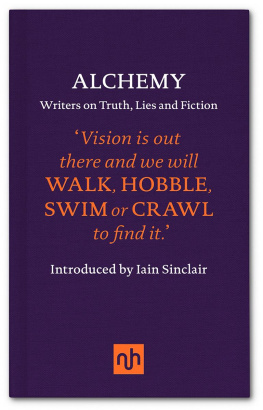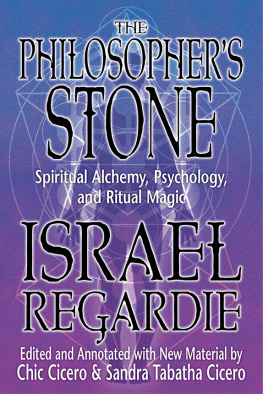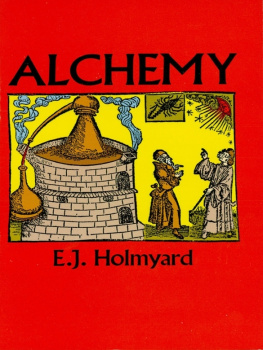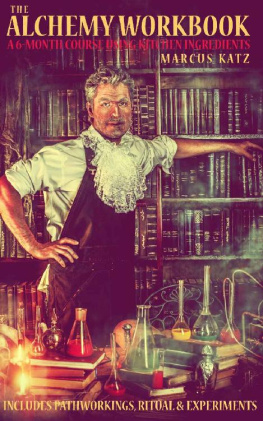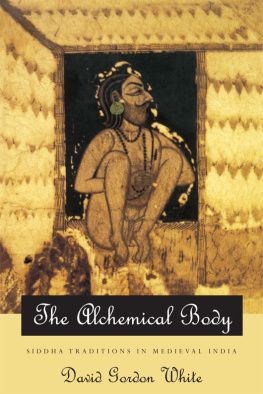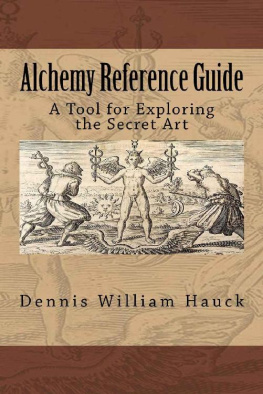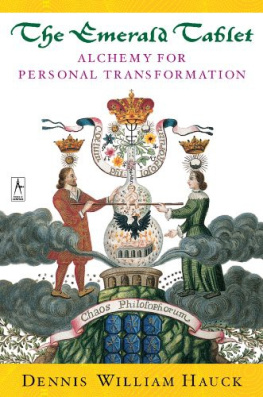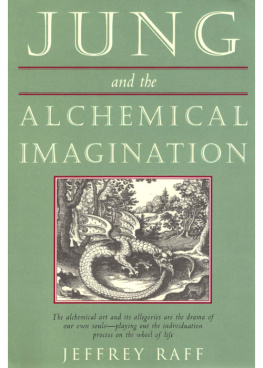ALCHEMICAL BELIEF
THE MAGIC IN HISTORY SERIES
FORBIDDEN RITES
A Necromancers Manual of the Fiffeenth Century
Richard Kieckhefer
CONJURING SPIRITS
Texts and Traditions of Medieval Ritual Magic
Edited by Claire Fanger
RITUAL MAGIC
Elizabeth M. Butler
THE FORTUNES OF FAUST
Elizabeth M. Butler
THE BATHHOUSE AT MIDNIGHT
An Historical Survey of Magic and
Divination in Russia
W. F. Ryan
SPIRITUAL AND DEMONIC MAGIC
From Ficino to Campanella
D. P. Walker
ICONS OF POWER
Ritual Practices in Late Antiquity
Naomi Janowitz
BATTLING DEMONS
Witchcraft, Heresy, and Reform in the
Late Middle Ages
Michael D. Bailey
PRAYER, MAGIC, AND THE STARS IN THE
LATE ANCIENT AND ANTIQUE WORLD
Edited by Scott Noegel, Joel Walker, and Brannon Wheeler
BINDING WORDS
Textual Amulets in the Middle Ages
Don C. Skemer
STRANGE REVELATIONS
Magic, Poison, and Sacrilege in
Louis XIVs France
Lynn Wood Mollenauer
UNLOCKED BOOKS
Manuscripts of Learned Magic in the Medieval
Libraries of Central Europe
Benedek Lng
The Magic in History series explores the role magic and the occult have played in European culture, religion, science, and politics. Titles in the series will bring the resources of cultural, literary, and social history to bear on the history of the magic arts, and will contribute towards an understanding of why the theory and practice of magic have elicited fascination at every level of European society. Volumes will include both editions of important texts and significant new research in the field.
I would like to thank Cambridge University Press for permission to reprint an earlier version of that appeared in Rethinking the Scientific Revolution, ed. Margaret Jacob (New York: Cambridge University Press, 2000), 89118.
Library of Congress Cataloging-in-Publication Data
Janacek, Bruce, 1961
Alchemical belief : occultism in the religious culture of early modern England / Bruce Janacek.
p. cm. (Magic in history)
Summary: Explores the practice of alchemy in the context of the religious and political tensions in late Elizabethan and early Stuart England, and the use of occult knowledge to demonstrate proof of theological doctrinesProvided by publisher.
Includes bibliographical references (p. ) and index.
ISBN 978-0-271-05013-3 (cloth : alk. paper)
1. EnglandChurch history1485 .
2. AlchemyReligious aspectsChristianityHistory.
3. AlchemyEnglandHistory.
I. Title.
BR757.J36 2011
261.5'13094209031dc22
2011015428
Copyright 2011 The Pennsylvania State University
All rights reserved
Printed in the United States of America
Published by The Pennsylvania State University Press,
University Park, PA 168021003
It is the policy of The Pennsylvania State University Press to use acid-free paper. Publications on uncoated stock satisfy the minimum requirements of American National Standard for Information SciencesPermanence of Paper for Printed Library Material, ANSI Z39.481992.
This book is printed on Natures Natural, which contains 50% post-consumer waste.
In Loving Memory of Susan Beaudette
But thy eternal summer shall not fade
Williaxsm Shakespeare, Sonnet 18, line 9
And the Lord God planted a garden eastward in Eden; and there he put the man whom he had formed. And out of the ground made the Lord God to grow every tree that is pleasant to the sight, and good for food; the tree of life also in the midst of the garden, and the tree of knowledge of good and evil. And a river went out of Eden to water the garden; and from thence it was parted, and became into four heads. The name of the first is Pison: that is it which compasseth the whole land of Havilah, where there is gold. And the gold of that land is good....
GENESIS 2:812 (KJV)
Behold, I will send my messenger, and he shall prepare the way before me: and the Lord, whom ye seek, shall suddenly come to his temple, even the messenger of the covenant, whom ye delight in: behold, he shall come, saith the Lord of hosts. But who may abide the day of his coming? and who shall stand when he appeareth? for he is like a refiners fire, and like fullers soap: And he shall sit as a refiner and purifier of silver: and he shall purify the sons of Levi, and purge them as gold and silver, that they may offer unto the Lord an offering in righteousness. Then shall the offering of Judah and Jerusalem be pleasant unto the Lord, as in the days of old, and as in former years.
MALACHI 3:14 (KJV)
The seed of this project was planted in a seminar called Renaissance Cosmologies led by Betty Jo Dobbs at the Folger Shakespeare Library. At the time I was early in my graduate training, trying to find a topic on religion in early modern England, and had never even heard of the history of science. One day, as Betty Jo and I sat outside the Folger after the seminar, she said to me in her gorgeous Arkansas accent, Ahve always thawht there wahs muhch moah tuh say about relihgion and alchahmy. I went on to write a seminar paper for her and followed her out to UC Davis to complete my doctoral studies under her direction, and after all these years, most of which she did not live to see, I think I can say with some confidence that I agree with her. Her passing, shortly after I had begun the research that would lead to this book, left a vast hole in my life. While I would never call myself a historian of science, I certainly learned more about that world than I would have dreamed possible, and this was due entirely to her inspiration and influence. I hope I have not made too many egregious errors in this volume on the few occasions when I have ventured into that world. Losing Betty Jo meant not only losing a mentor; it meant losing a dear soul whom I still miss. I hope this book would have pleased her.
Several colleagues came to my assistance after Betty Jos sudden passing, and I am indebted to all of them. Paula Findlen heroically took over the direction of my work, and her patience, advice, and criticism were always on the mark and I benefited immensely from her direction and mentoring. She assembled a new, long-distance committee with the assistance of Anthony Grafton and Bruce Moran, both of whom agreed without hesitation to help me complete my work. Under Paulas guidance, I received funding to complete my research from the Clark Memorial Library, the Huntington Library, and the Dibner Library of the Smithsonian Institution, as well as a research fellowship from the University of CaliforniaDavis that allowed me to devote six months of study in Oxford at the Bodleian and British libraries. I received additional support from the Huntington Library and from the Folger Shakespeare Library, and I made research trips to Oxford, the Folger, and the Huntington funded by the Faculty Professional Development Committee and the Office of Academic Affairs at North Central College. The completion of this book would not have been possible without that generous support.
As crucial as the financial assistance was the collegial support I enjoyed in all of these venues and others. I am grateful to the many listeners at the Sixteenth Century Society and Conference who have asked important questions over the years that helped clarify my thinking on the issues. I am especially grateful to Chad Gunnoe, Carole Levin, Emmet McLaughlin, Michael Walton, and Gerhild Williams, who made my progress possible and enjoyable.
I was fortunate to spend a great deal of time in some of the great libraries and special collections on both sides of the Atlantic. I want to thank William Hodges, now retired, and his inimitable staff of the Duke Humfreys Library at the Bodleian Library for their gracious assistance, and thanks also to the staff in the Manuscript Room at the British Library. The support of Roy Richie at the Huntington Library and the culture of intellectual inquiry he encouraged there are second to none, and I am deeply indebted to him and to the Research Division, which he directed. The summers I spent at the Folger Shakespeare Library involved many pleasant and stimulating conversations with early modernists from around the world, and I benefited immensely from the time I spent with them at tea in the Folger and relaxing on Capitol Hill afterward. The librarians at the FolgerBetsy Walsh, head of Reader Services, Harold Batie, LuEllen DeHaven, Rosalind Larry, and Camille Seerattanwere extraordinarily kind and unfailingly professional. I am particularly indebted to Richard Kuhta (now retired), Georgianna Ziegler (head of the Reference Department), and Gail Kern Paster, the Folgers director, who gave generously of their time and expertise.
Next page
